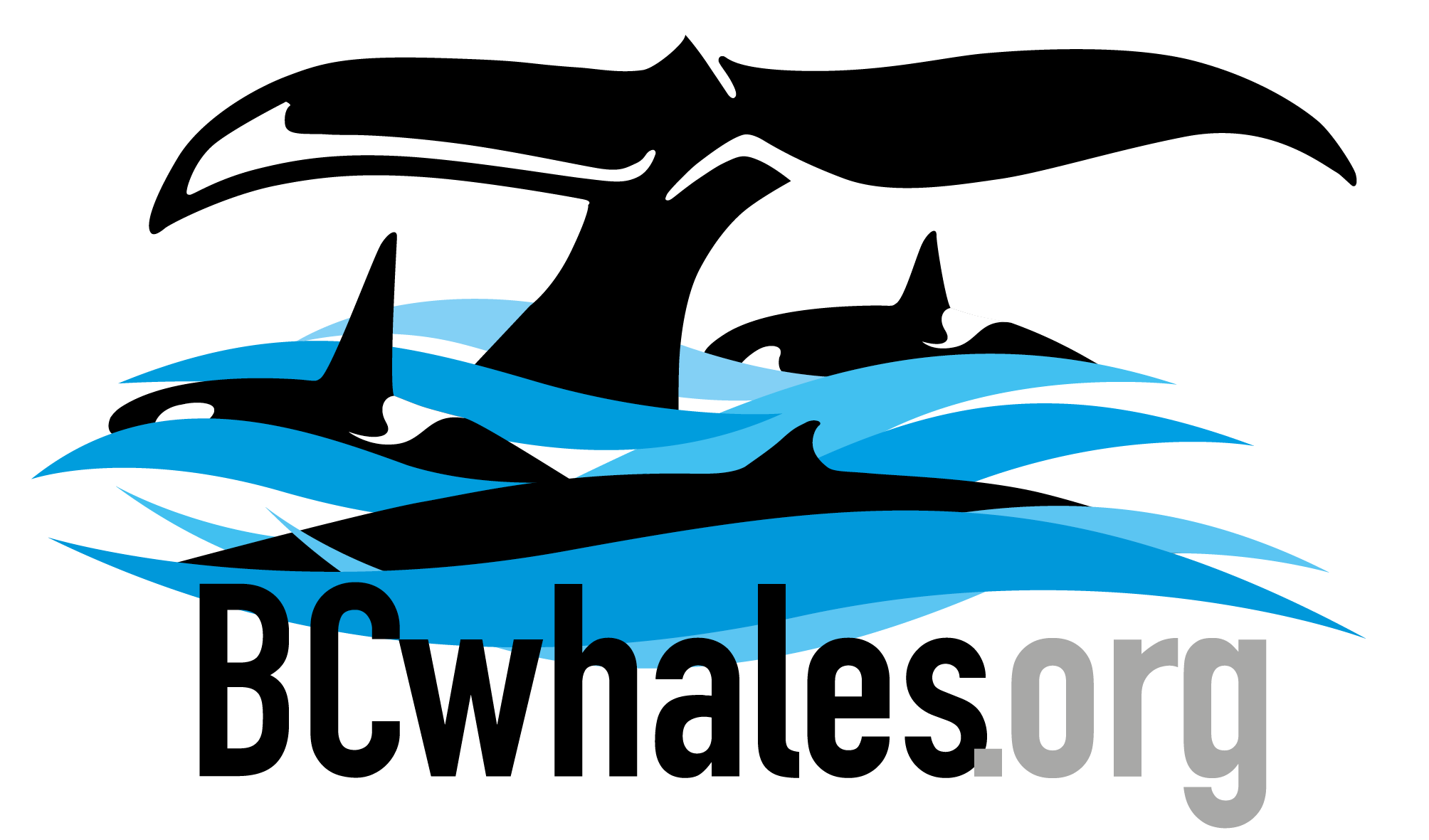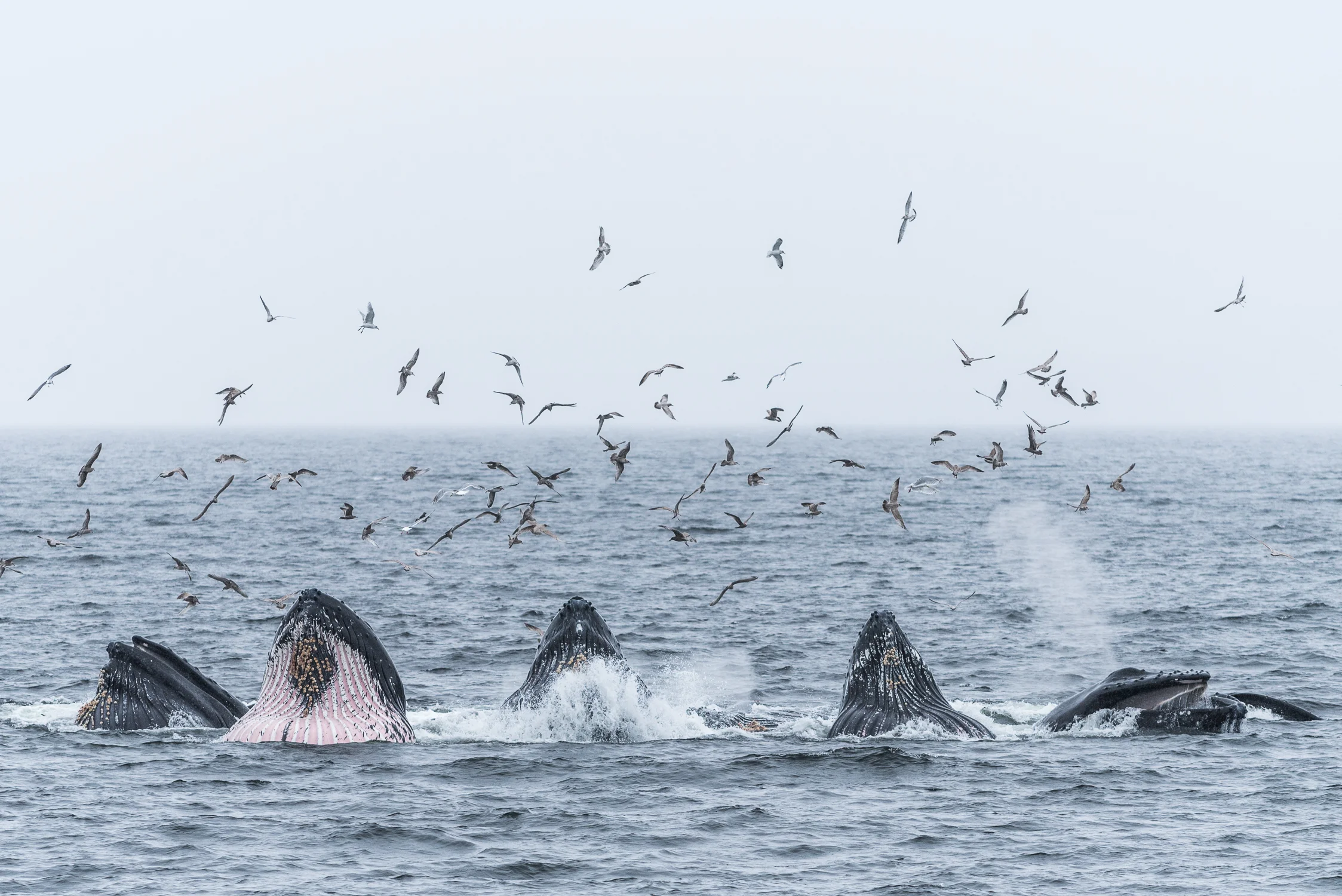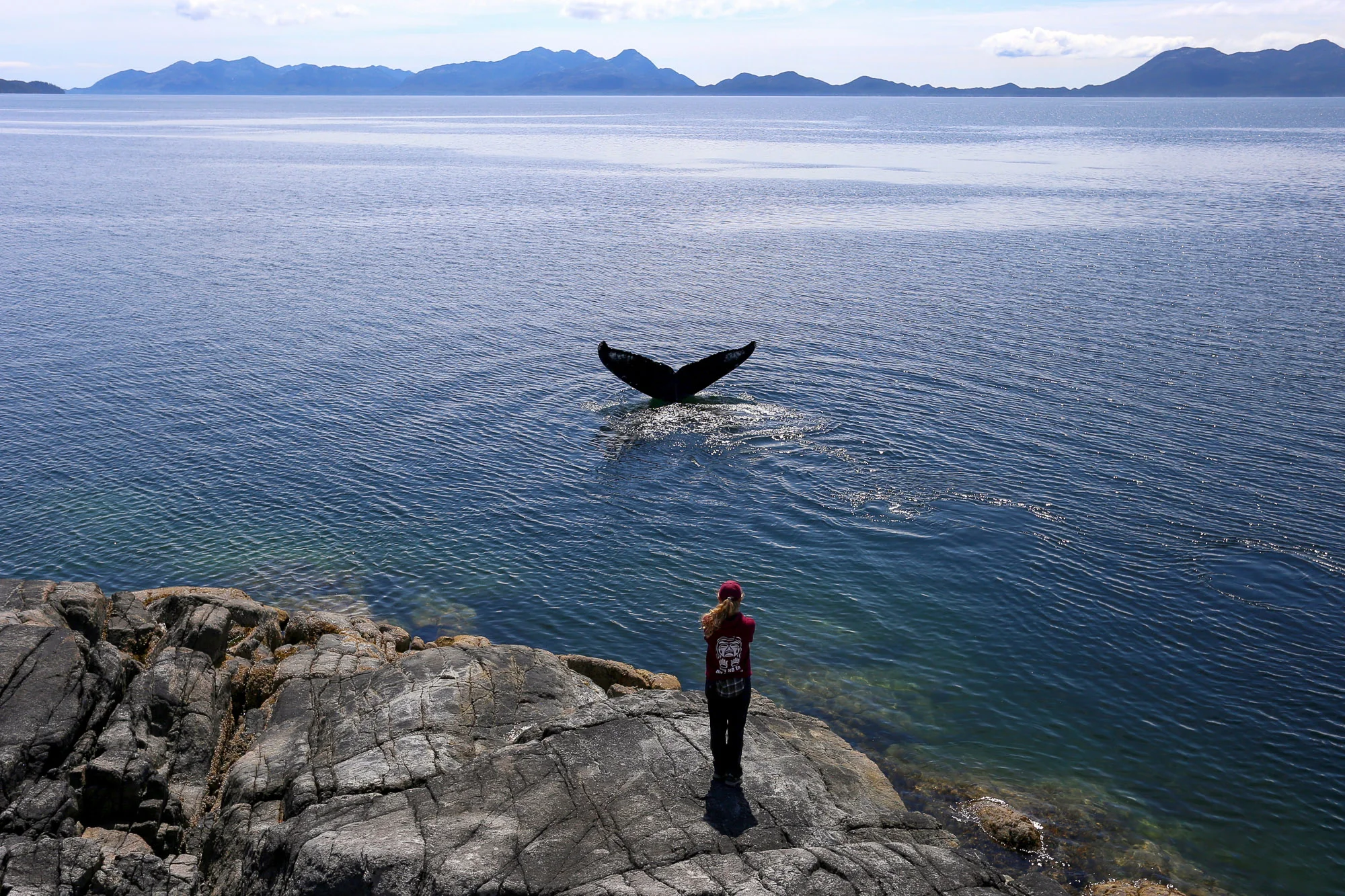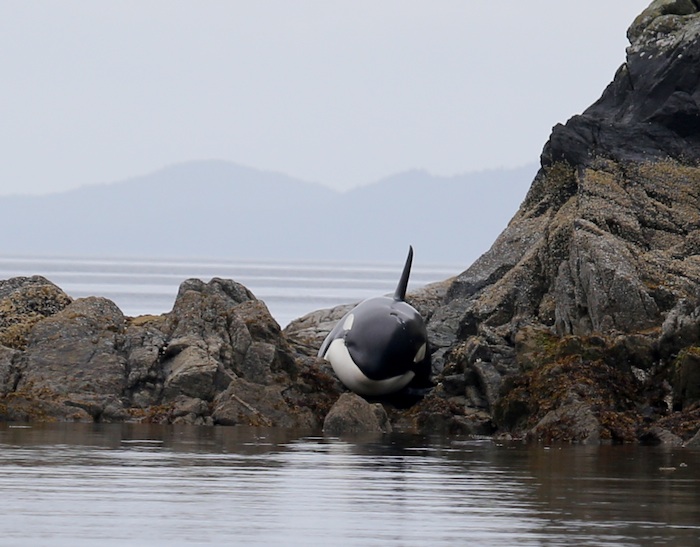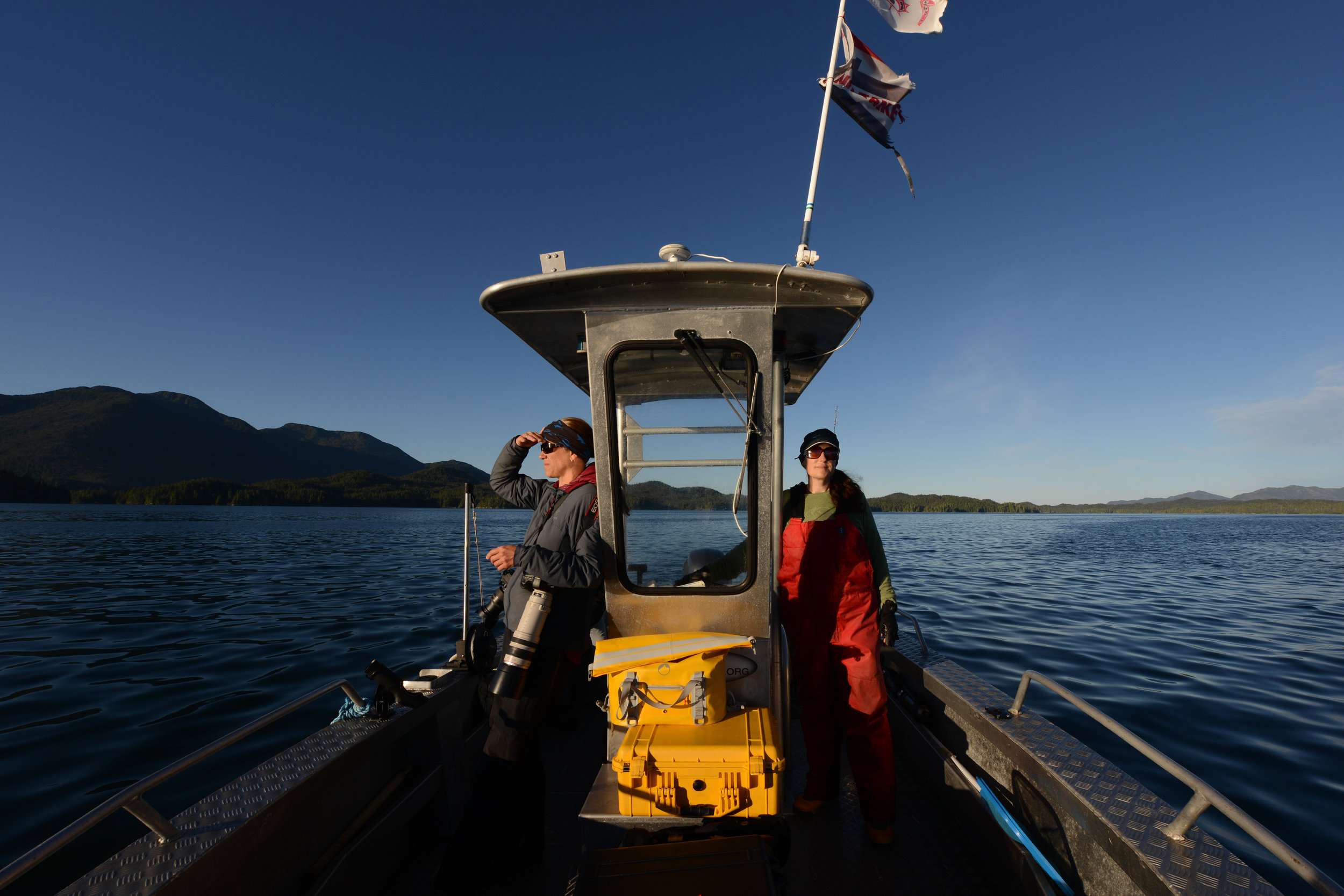Our goal is to understand the habitat needs of whales through dedicated research programs and collaboration with coastal First Nations communities.
We are devoted to a lifetime commitment to uphold the balance between all whales and the environment essential for their survival. This is being accomplished through research and partnerships that allow us to share with you, all that we can learn from these majestic whales.
The information and photographs contained on this website are the result of 22 years of living alongside the majestic whales of northern BC. By reflecting on the time we have spent with our neighbours, we are only just beginning to understand their nutritional, spatial, acoustic and social needs. If there is anything we have learned, it is that there is so much left to know about whales. It has also been increasingly clear over the years just how distinctly unique the personality and culture of each individual species is and how they behave and interact with each other. Some whales display tendencies towards loneliness or shyness, while others choose a close circle of companions.
Whales of the North coast
The return of humpback whales to our research area has been dramatic. In 2004, 42 individual humpback whales were identified in the Caamano Sound to Douglas Channel region. By the end of our 2019 season this number was 426 individual identified and many of these return year after year and are referred to as seasonal resident humpback whales.
Research projects
From its small perch on Fin Island, this new research camp (established in 2017) overlooks many things at once: the most active whale areas in British Columbia's fjordland, Squally Channel, a proposed LNG shipping lane, as well as the hydrophone network at the center of the SWAG project (Ships, Whales, Acoustics in Gitga'at Territory).
Whale Tales (blog)
It was 7:30am when we received a call from Eric Keen on his vessel the Bangarang when he alerted us that a juvenile transient orca had just beached herself on the shore of Andrew Rocks. She had positioned herself near the rocks waiting, almost motionlessly, while her family chased a seal in her direction. It must have been a miscalculation on her part because as the tide went out, she found herself stuck and unable to move.
about us
We are a non-profit whale-research organization dedicated to the research and protection of cetaceans (all whales, dolphins and porpoise) along the northern coast of British Columbia. This project began 22 years ago with two people, a boat and the philosophy that if you put your heart and soul into something you truly believe in, anything is possible.
DONATE
The BC Whales team will use every means possible to collect data on the populations, movements, food source and essential habitat use of orca, humpback and fin whales along the north coast. All three species are threatened under the Species at Risk Act (SARA), and they have the propensity to migrate along identical routes that has been proposed for LNG tankers to traverse through.
visual media
The information and photographs contained on this website are the result of 22 years of living alongside the majestic whales of northern BC. By reflecting on the time we have spent with our neighbours, we are only just beginning to understand their nutritional, spatial, acoustic and social needs.
